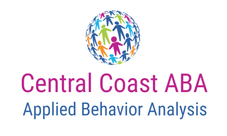|
Happy New Year to all of our families, friends and followers! We hope everyone had a safe and joyous holiday season. As we begin to wind down and the new year begins, we wanted to start the year off with a blog to emphasize just how crucial parent and caregiver participation is in ABA therapy. In this blog post, we will discuss how essential parent participation is to ABA therapy and to the child’s skill development overtime. Our Training and Program Development Director, Michelle Caldwell M.A. BCBA, states:
“The biggest point for parent participation is understanding that parents are with their kids for pretty much their whole life and most of everyday while the clinical team is only with them for a few hours a day or only a couple days a week. So, we really want parents to learn the tools needed to understand what to do when a challenging behavior occurs as well as how to teach them new skills. The way to learn this is to be present during sessions, to observe the technician working, as well as trying to work on the goals themselves in session. Maintaining consistency, whenever possible, with the strategies they implement as this is going to help the client understand what is expected of them.” How Much Parent Involvement is Necessary? We recommend to have as much parent involvement as possible. However, the level of parent and caregiver involvement in ABA therapy may differ amongst all families because all children are different and require different programs and strategies for their own success. We also understand that this can be an especially stressful time for you and your family after getting an official diagnosis. There are tons of resources available to help bridge the time of diagnosis to early intervention and ABA therapy. Your clinical team is always willing to assist in any way they can to help this process go as smoothly and be as efficient as possible for you and your family. Don’t be afraid to reach out if you have any questions regarding your sessions, parent training, insurance, or anything else regarding your child’s ABA therapy. Parent Training When going through parent training with your clinical team, ask questions! All of this may be new to you, but this is their specialty. They will work with you and explain what you need in terms aren't overwhelming. Keep notes so that you can refer to them later and be able to follow up with any additional questions you may have. If there are any specifics that you want mentioned in any of the planning stages, please be honest and open with what challenges you’re dealing with while practicing what you’ve learned with your kiddo. Active Parent Participation: In and Out of Sessions It is imperative that parents and caregivers are active participants during their child’s ABA sessions and outside of sessions when the clinical team is not present. Practicing the strategies and reinforcing skills being taught by your clinical team is integral to the child understanding how to generalize and use those skills in other environments besides just the home. This can also help to strengthen the bond between caregivers and children as they continue to learn and develop their skills, moving away from unwanted behaviors and rewarding positive behaviors. Benefits of Parent Training and Active Participation ABA uses science to shape behavior and promote learning. ABA intervention is the most effective, scientifically proven therapy used to treat individuals diagnosed with autism. With this information, you can breathe a little easier knowing that these methods are tried and true and can really help improve the quality of life of not just your child, but your entire family. Strengthening socials skills, communication, promoting independence and advocacy as well as reinforcing positive behaviors more effectively are just a few of the benefits that can come with ABA therapy and even more so when parents are at the forefront of their learning. Parents are such an important foundation when it comes to the success of the child and ABA. We want to ensure that you and your family are getting the most out of this collaboration as it is a team effort between the family, the clinical team, the school, and more! Central Coast ABA is committed to working with you and your child to get the most out of their ABA therapy sessions as possible. Again, reach out to your clinical team to help with any questions you may have about ABA sessions for your child, as parent involvement is critical to the success of their skill development. Was this information helpful? Please share your thoughts, experiences, and feedback with us. You can find us on Facebook, Instagram, LinkedIn, TikTok and YouTube @centralcoastaba. References: Burke, Ally. Why Parent Involvement is Important to Autism Therapy for Children. Applied ABC. 2023. (https://www.appliedabc.com/blog/why-parent-involvement-is-important-to-autism-therapy-for-children) Parent Training in ABA: Why Parent Involvement is Critical for Success. Behavioral Innovations. 2023 (https://behavioral-innovations.com/blog/importance-of-parent-training-aba-therapy/) The Role of Caregiver Involvement in ABA Therapy. BHCOE Accreditation for ABA Therapy. 2016. (https://www.bhcoe.org/2021/07/the-role-of-caregiver-involvement-in-aba-therapy/)
0 Comments
|
AuthorOur Board Certified Behavior Analysts (BCBAs) are dedicated to sharing their expertise on topics that are important to you. Archives
January 2024
Categories |


 RSS Feed
RSS Feed
